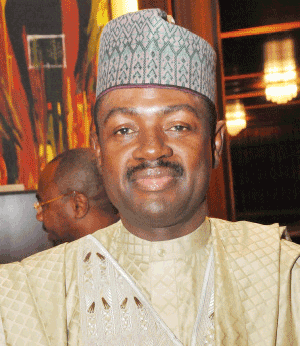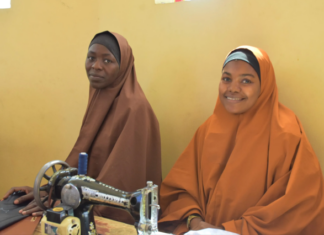The reform of the Advertising Practitioners Council of Nigeria (APCON) in 2013 was to check unhealthy competition between local firms and foreign ones as well as promote local content.
Therefore, the recent decision by the Peoples Democratic Party (PDP) and the All Progressives Congress (APC) to hire foreign communication agencies has sparked off debate.
Information Minister, Labaran Maku, spoke to GODDIE OFOSE at the Association of Advertising Agencies of Nigeria (AAAN) annual general meeting international seminar in Abuja on the effect of dependence on foreign experts, local media ownership and the appointment of a new APCON chairman.
Media ownership that skews reporting
Labaran Maku
I appreciate all those who have invested in the media with their money. They are creating jobs and enabling our country to have platforms for alternative ideas. Anyone that has invested in the media has my support as minister of information.
The only thing we say is that the media should be free; don’t invest in the media and subordinate it to a certain political or individual interest.
Let the media operate professionally, let the professionals in the media determine what is news and what is the truth. Let it not be dictated by the owners. The owners should behave the same way as those who have invested in healthcare facilities such as clinics and hospitals.
You don’t go to the doctor and say somebody has malaria and because he belongs to another political party you say he or she has yellow fever. If they do that in any hospital people will run away. Once you set up a television or radio station then let the professionals determine particularly what news is.
Opinion is free. Someone could write an opinion and disagree with the minster of information, that is his right. The reality is that ownership is beginning to intervene too much in what the media are doing, particularly the print media. It should not be so. It is also hampering the effort of reporters.
You go into a newsroom, you have a good story which you have verified, but when you look at the person behind the newspaper you know this story will not go or if it goes there may be huge consequences. That is the kind of thing I believe we should avoid.
If you set up a newspaper simply to project your own political interest then it is no longer a newspaper but political interest reportage.
We want these things to be free so that Nigerians can make the right choices. Having invested in the media let the professionals take their place and run the newspaper in conformity with the basic truth and principles of journalism.
APCON chairman’s appointment
There have been mistakes because the law is very clear about who becomes an APCON chairman. It’s a specific professional board and we are sorting it out. We are praying that very soon the various issues that violate the APCON Act in the composition of the membership of the board will be resolved.
Hiring foreign PR professionals
No nation is an island. People hire other people to do jobs for them. I have seen British politicians hiring Americans to do their public relations and also American politicians hiring the British to handle their communication.
These days you want to invest in someone or an organisation you think has the professional knowledge about the area to sell your ideas. It’s a free world now. In other words, journalists must sit up and not presume that because you are a journalist you are a professional and if there is an opportunity in Nigeria you are the one that would be called. You have to horn your practice to a capacity where you can withstand anybody from anywhere in the world.
Having said that, there are also lots of talents at home that I will advise our politicians to patronise because you are spending more when you go abroad for a talent that you can find at home. It leads to capital flight.
When you spend in Nigeria you are also promoting the polity and also job creation and the economy. But there are some Nigerians who still have the colonial mentality; they believe the people at home are not good.
If you don’t have confidence in the people at home then you might as well go and stand for election in those countries.
Digital migration and due date
We are working hard to meet up. We had an emergency national council on information and brought all the state governments because the problem we have is at state level. In the last three years, we have been on this road working with them.
The Nigerian Broadcasting Commission (NBC) and other teams are working to ensure this works out. We thought we should compare notes with states; a lot of them have done quite a good job.
On July 5, we switched off analogue broadcasting in Jos and within the next six weeks Jos will be completely on digital platform. We are also urging states to make this a priority.
We have asked states to be ready by October 31 to hook on to a digital signal distributor. We hope to switch the various cities on to the platform between that period and June next year. We will be fine-tuning.
We have already agreed on the basic standard for a set up box for those who have analogue television sets and we have standardised it across the whole countries in the Economic Community of West African States (ECOWAS).
So, if you have a set up box in Nigeria it should work in Ghana too; that harmonises the market and standardises technical issues.
Plans for second signal distributor
We have almost reached a conclusion for the emergence of a second signal distributor in addition to the Nigerian Television Authority (NTA). With all this we will be freeing up the spectrum used now to broadcast television programmes for broadband development to speed up our internet. It is a win-win situation.
I call on the media to continue to help us with publicity, let Nigerians be aware. We believe that, with what is going on, we will be able to meet up.













